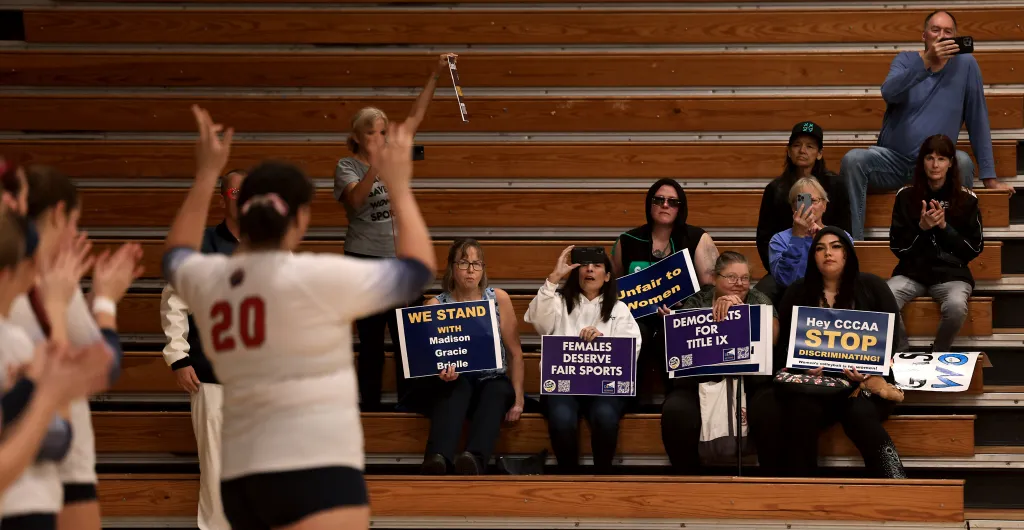Copyright Santa Rosa Press Democrat

Despite making up less than 1% of the U.S. population, transgender people are frequent targets of disinformation and scapegoating. This has been especially true for transgender athletes. This year, three volleyball players at Santa Rosa Junior College filed a U.S. Department of Education complaint alleging Title IX violations by the school and the California Community College Athletic Association for allowing a transgender player on the school’s team. The players claimed, among other things, that the trans player posed a physical danger to them. Those who advocate for the exclusion of transgender women from women’s sport often claim these athletes have an unfair advantage. They suggest trans women are no different than cisgender men in their strength and athletic capabilities. This has led some to say that the presence of transgender women is likely to increase injury rates to cisgender women. For individuals who undergo male puberty, testosterone promotes higher hemoglobin levels, greater bone density and growth, and increased muscle cross-sectional area, which equates to greater strength and success in sports demanding speed and power. However, many of these advantages are lost when a trans woman receives gender-affirming hormone treatment. Under California Community College Athletic Association rules, a transgender woman or nonbinary student may compete in the women’s category if they have completed at least one year of testosterone-suppressing treatment. The effects of hormone treatment may result in disadvantages compared to cisgender peers. Research suggests transgender women on gender-affirming hormone treatment have similar bone density and blood oxygen carrying capacity as cisgender women. This treatment also reduces muscle cross-sectional area, giving trans women the disadvantage of having to power larger skeletal frames with reduced strength and aerobic capacity. Trans women have also been shown to perform worse on measures of lower-body strength and lung function. It should also be noted that trans women have been allowed to compete in the Olympics since 2004, and not one has medaled. These facts cast doubt on the suggestion that it is unfair to allow trans women in the female category. Supporters of transgender athlete bans will often cite the case of Payton McNabb who suffered a traumatic brain injury after being struck with a volleyball during a match with a transgender player in 2022. However, according to a 2023 article in the Orthopaedic Journal of Sports Medicine, more than 214,000 high-school and college volleyball players have been injured while playing volleyball since 2012. As far fewer than 1% of sports players are transgender, the overwhelming majority of these incidents occur between cisgender players. There is no data to suggest a difference in concussion rates or severity between transgender and cisgender volleyball players. However, these bans do cause harm to transgender athletes. As a psychiatrist, I know that trans youth experience high rates of minority stressors such as bullying, non-affirmation and rejection from family and peers. These stressors directly contribute to higher rates of anxiety and depression, which can affect athletic performance and make it more difficult for trans youth to train and compete. These psychosocial factors contribute to the underrepresentation of transgender athletes in collegiate sports and in the Olympics. Despite the obvious harms against transgender athletes, and the lack of evidence to support their exclusion, many people continue to scapegoat trans women athletes, choosing to prioritize false narratives over facts. These attacks impact all women by creating an environment of fear, false allegations, character assassination and invasive examinations. Far from protecting women, anti-trans policies distract from the many real inequities faced by women athletes, such as access to equal facilities, pay and health care. If the real goal is to preserve the integrity of women’s sport, these should be the priorities. Dr. Jamie D. Agapoff is a psychiatrist in Santa Rosa.



